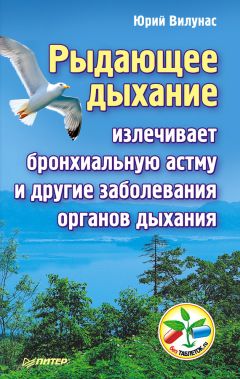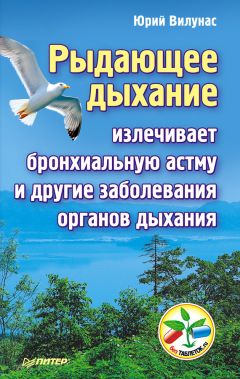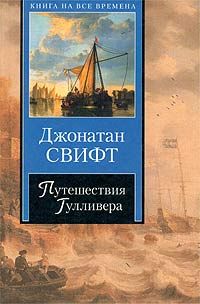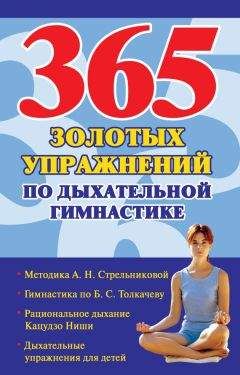Джонатан Свифт - Английский язык с Джонатаном Свифтом. Путешествия Гулливера
rebellion [rI'beljqn], rather ['rRDq], live [lIv]
The people hated this law so much that it had caused six rebellions. One Emperor even lost his life and another his crown. Over the years, eleven thousand people had suffered death rather than break their eggs at the smaller end. Many Big-Endians had left Lilliput and gone to live in Blefuscu. Hundreds of books had been written about this dispute. But the books written by the Big-Endians had been banned.
The Big-Endians, who were welcomed in Blefuscu (тупоконечники, которые были радушно приняты в Блефуску), had gained so much support from their party at home (получили такую поддержку со стороны своих единомышленников на родине; party — сторона в сражении, споре; участник, соучастник; группа; политическая партия) that a bloody war had been going on between the two Empires for three years (что кровавая война между двумя = обеими империями продолжается /уже/ в течение трех лет; to go on — идти дальше; продолжать/ся/; длиться). During this time, the Lilliputians had lost forty ships (за это время лилипуты потеряли сорок крупных кораблей; ship — корабль; трехмачтовая шхуна) and many more smaller vessels (намного больше малых: «меньших» судов; vessel — сосуд; судно, корабль). They had also lost thirty thousand seamen and soldiers (также они лишились тридцати тысяч моряков и солдат). The damage received by the enemy was thought to be even greater (полагают, что ущерб, понесенный: «полученный» противником, еще больше/значительнее: «ущерб… считается еще более значительным»).
welcome ['welkqm], bloody ['blAdI], even ['Jv(q)n]
The Big-Endians, who were welcomed in Blefuscu, had gained so much support from their party at home that a bloody war had been going on between the two Empires for three years. During this time, the Lilliputians had lost forty ships and many more smaller vessels. They had also lost thirty thousand seamen and soldiers. The damage received by the enemy was thought to be even greater.
However, there was a further point (однако было еще одно обстоятельство; further — /сравнит. степень от far/ более далекий; дальнейший, добавочный; point — точка; пункт, момент, вопрос; дело) that Reldresal wanted to make clear to me (которое Pелдресел хотел мне разъяснить: «сделать ясным для меня»). Blefuscu now had a large fleet (имел теперь большой флот) and was preparing to invade (и готовился к нападению: «вторгнуться/напасть»). His Majesty, who was confident of my bravery and strength (его величество, который был уверен в = доверяясь моей храбрости и силе), had asked Redresal to tell me about these affairs (просил Релдресела сообщить мне об этих /государственных/ делах). I asked the Secretary to tell the Emperor (я попросил секретаря сказать = передать императору) that I thought it better, as a foreigner (что я, как иностранец = будучи иностранцем, считаю за лучшее), not to interfere in party politics (не вмешиваться в политику партий). However, I added that I was ready to risk my life (однако я прибавил, что готов рисковать своей жизнью) to defend him and his country against invaders (чтобы защитить его /самого/ и его страну от захватчиков).
confident ['kOnfIdqnt], foreigner ['fOrInq], ready ['redI]
However, there was a further point that Reldresal wanted to make clear to me. Blefuscu now had a large fleet and was preparing to invade. His Majesty, who was confident of my bravery and strength, had asked Redresal to tell me about these affairs. I asked the Secretary to tell the Emperor that I thought it better, as a foreigner, not to interfere in party politics. However, I added that I was ready to risk my life to defend him and his country against invaders.
5
The Empire of Blefuscu is an island (империя Блефуску есть остров) situated to the north-east of Lilliput (расположенный на северо-восток от Лилипутии). The channel dividing the two Empires (пролив, разделяющий две империи) is only eight hundred yards wide (имеет всего лишь восемьсот ярдов в ширину). I avoided that side of the coast (я избегал той стороны = части побережья) for fear of being seen by the enemy (из опасения быть увиденным неприятелем). They knew nothing about me (они = жители Блефуску ничего не знали обо мне), since all communication between the two Empires was forbidden during the war (так как во время войны всякое сношение между двумя империями было запрещено; to forbid).
situated ['sItjVeItId], nothing ['nATIN], communication [kq"mjHnI'keIS(q)n]
The Empire of Blefuscu is an island situated to the north-east of Lilliput. The channel dividing the two Empires is only eight hundred yards wide. I avoided that side of the coast for fear of being seen by the enemy. They knew nothing about me, since all communication between the two Empires was forbidden during the war.
I told His Majesty about a plan I had (я сообщил его величеству свой план: «о плане, который у меня был») to seize the enemy's fleet (захвата неприятельского флота: «чтобы захватить…»). Our scouts had told us (наши разведчики сообщили нам) that their fleet was anchored in the harbour at Blefuscu (что их флот стоял на якоре: «был поставлен на якорь» в гавани Блефуску; anchor — якорь) and ready to sail with the first fair wind (и /был/ готов отплыть при первом попутном ветре; sail — парус; to sail — плавать, совершать плавание; отплывать; отправляться /о судне/; fair — красивый, прекрасный; хороший, ясный /о погоде/; попутный /о ветре/). I asked some seamen, who knew the channel well (я спросил нескольких моряков, хорошо знавших пролив), how deep it was (какова его глубина: «как/насколько он глубок»). They told me that in the middle at high tide (они сказали мне, что при высокой воде в /своей/ средней части; tide — прилив и отлив; high tide — полная вода; прилив) it was seventy glumgluffs deep (он имеет глубину в семьдесят глумглуфов), which is about six feet (что составляет около шести футов).
scout [skaVt], anchor ['xNkq], harbour ['hRbq]
I told His Majesty about a plan I had to seize the enemy's fleet. Our scouts had told us that their fleet was anchored in the harbour at Blefuscu and ready to sail with the first fair wind. I asked some seamen, who knew the channel well, how deep it was. They told me that in the middle at high tide it was seventy glumgluffs deep, which is about six feet.
I walked to the north-east coast (я отправился на северо-восточный берег) where I lay down behind a small hill (где лег = укрылся за небольшим холмом). I could see the enemy fleet through my small pocket telescope (я мог видеть неприятельский флот через свою карманную подзорную трубу). The fleet consisted of about fifty men-of-war (флот состоял примерно из пятидесяти военных кораблей; ед. ч. man-of-war) and a great number of smaller boats (и большого числа меньших судов; boat — лодка; корабль; судно).
walk [wLk], behind [bI'haInd], men-of-war ["menqv'wL]
I walked to the north-east coast where I lay down behind a small hill. I could see the enemy fleet through my small pocket telescope. The fleet consisted of about fifty men-of-war and a great number of smaller boats.
When I got back to my house (возвратившись домой) I asked for some strong rope (я попросил крепкого каната) and some bars of iron (и железных брусьев; some — некоторое количество /чего-л./). I twisted three ropes together to make them stronger (я свил три каната вместе, чтобы придать им большую прочность: «сделать их крепче/прочнее»). I did the same with three iron bars (то же самое я проделал с железными брусьями), bending the ends to make a hook (загнув /их/ концы в виде крючков: «чтобы сделать крючок»). Having fixed fifty hooks and ropes (скрепив пятьдесят крючков и веревок /вместе/; to fix — устанавливать; прикреплять; закреплять), I went back to the northeast coast (я возвратился на северо-восточный берег). I took off my coat, shoes and stockings (снял кафтан, башмаки и чулки) and walked into the sea (и вошел в море). I waded in as far as I could (сколько: «так далеко как» смог, я прошел по дну; to wade — идти по дну, вброд) and then swam (а потом плыл) until I could feel the ground under me again (пока снова не почувствовал: «/не/ смог почувствовать/нащупать» под собою дно). I reached the enemy fleet in less than half an hour (я достиг неприятельского флота меньше чем за полчаса).
together [tq'geDq], northeast ["nLT'Jst, "nL'rJst ], hour ['aVq]
When I got back to my house I asked for some strong rope and some bars of iron. I twisted three ropes together to make them stronger. I did the same with three iron bars, bending the ends to make a hook. Having fixed fifty hooks and ropes, I went back to the northeast coast. I took off my coat, shoes and stockings and walked into the sea. I waded in as far as I could and then swam until I could feel the ground under me again. I reached the enemy fleet in less than half an hour.
They were so frightened (они были так напуганы) when they saw me (увидев меня) that they leaped out of their ships (что попрыгали со своих кораблей) and swam ashore (и поплыли к берегу; shore — берег /моря, озера/). There were no less than thirty thousand people watching me from the shore (не менее тридцати тысяч человек наблюдали за мной c берега). I fastened a hook to the hole at the prow of each ship (я прикрепил крючок к отверстию = зацепил крючком за отверстие в носовой части каждого корабля) and tied all the cords together at the end (и связал на конце все веревки вместе = в один узел).
frightened [fraItnd], ashore [q'SL], prow [praV]
They were so frightened when they saw me that they leaped out of their ships and swam ashore. There were no less than thirty thousand people watching me from the shore. I fastened a hook to the hole at the prow of each ship and tied all the cords together at the end.
While I was busy doing this (пока я проделывал это: «был занят, делая это»), the enemy fired several thousand arrows (неприятель выпустил /в меня/ несколько тысяч стрел). Many of them stuck in my hands and face (многие из них воткнулись мне в руки и лицо; to stick —втыкать, вонзать; торчать). I was very worried about my eyes (я очень беспокоился/боялся за глаза), which would certainly have been injured (которым наверняка был бы причинен вред; to injure — ранить, причинить травму, вред) if I had not remembered the pair of spectacles in my private pocket (если бы я не вспомнил об очках в своем секретном кармане).
busy ['bIzI], eyes [aIz], injure ['InGq]
While I was busy doing this, the enemy fired several thousand arrows. Many of them stuck in my hands and face. I was very worried about my eyes, which would certainly have been injured if I had not remembered the pair of spectacles in my private pocket.
Having fastened all the hooks (приладив все крючки), I took the knot at the other end of the ropes (я взялся за узел на другом конце веревок), and began to pull (и начал тащить). Not one ship would move (ни один корабль не двинулся /с места/; would здесь выражает упорство, настойчивость: «никак не хотел двинуться»). They were all held fast by their anchors (все они крепко держались на якорях: «удерживались якорями»). I then cut the anchor ropes with my knife (тогда я обрезал якорные канаты ножом). Taking the knot once more (снова: «еще раз» взяв /в руку/ узел), I was able to pull fifty of the enemy's largest warships quite easily (я легко потащил за собою пятьдесят самых крупных неприятельских военных кораблей; quite — вполне, совершенно).




